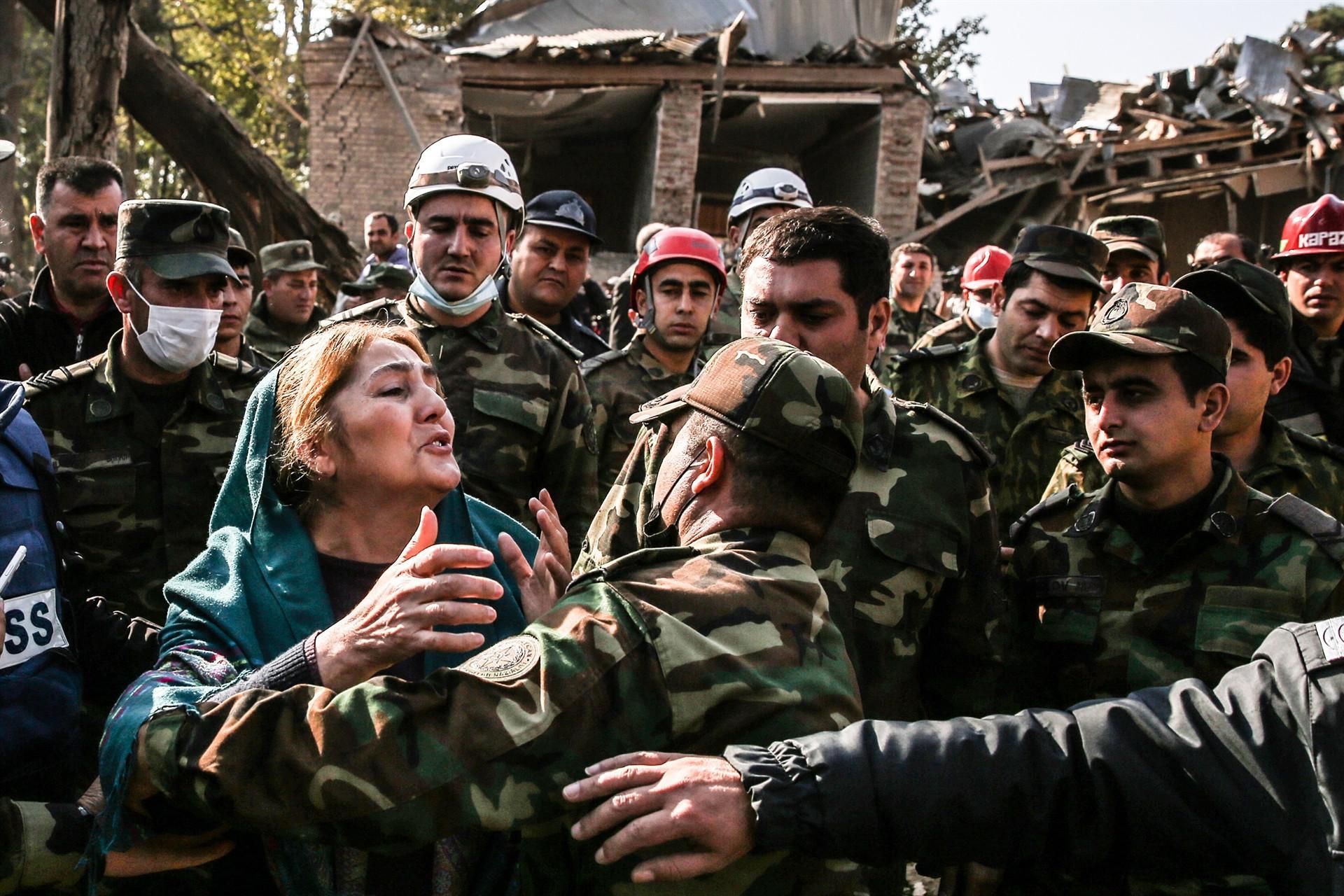
Azerbaijan on Oct. 11 vowed a “befitting retaliation” against Armenia’s attacks which targeted Azerbaijani settlements despite a humanitarian cease-fire in place.
“The Armenian side aims to recapture the liberated territories. Armenia’s political-military leadership bears responsibility for perpetrated crimes. The Azerbaijani side will give a befitting retaliation!” President Ilham Aliyev said on Twitter.
His remarks came right after an Armenian missile attack on Azerbaijan’s second-largest city of Ganja, violating a temporary cease-fire on humanitarian grounds, at 2 a.m. local time on Oct. 11 (2200GMT Saturday).
Dubbing the recent attack a “war crime,” Aliyev said it is also a “gross violation” of the Geneva Conventions.
The death toll in a recent Armenian missile attack on Azerbaijan's Ganja city, despite a cease-fire, rose to nine including four women on Oct. 11.
As many as 34 others, among them 16 women and six children, are injured, the Prosecutor General's Office in Azerbaijan said in a statement.
Hikmat Hajiyev, assistant to the Azerbaijani president, said the attacks were Armenia's "policy of vandalism and barbarism" against Azerbaijani civilians, and "an act of genocide."
Attacking civilians with destructive missiles is a war crime, a manifestation of immoral behavior of Armenia's political-military leadership, he tweeted.
Clashes erupted between the two countries on Sept. 27, and since then Armenia has continued attacks on civilians and Azerbaijani forces.
A humanitarian ceasefire agreed for the exchange of prisoners and retrieval of bodies in Nagorno-Karabakh came into force at 12 p.m. local time (0800GMT) on Oct. 10.
However, hours after the truce started, Azerbaijan’s Defense Ministry said Armenia is “grossly” violating the cease-fire agreement.
It said Armenian attempts to attack the Aghdere-Terter and Fizuli-Jabrayil fronts were successfully suppressed by the Azerbaijani military.
Relations between the two former Soviet republics have been tense since 1991 when the Armenian military occupied Upper Karabakh, or Nagorno-Karabakh, an internationally recognized territory of Azerbaijan.
Some 20 percent of Azerbaijan's territory has remained under illegal Armenian occupation for nearly three decades.
Multiple U.N. resolutions, as well as international organizations, demand the withdrawal of the invading forces.
The OSCE Minsk Group – co-chaired by France, Russia, and the US – was formed in 1992 to find a peaceful solution to the conflict, but to no avail. A cease-fire, however, was agreed to in 1994.